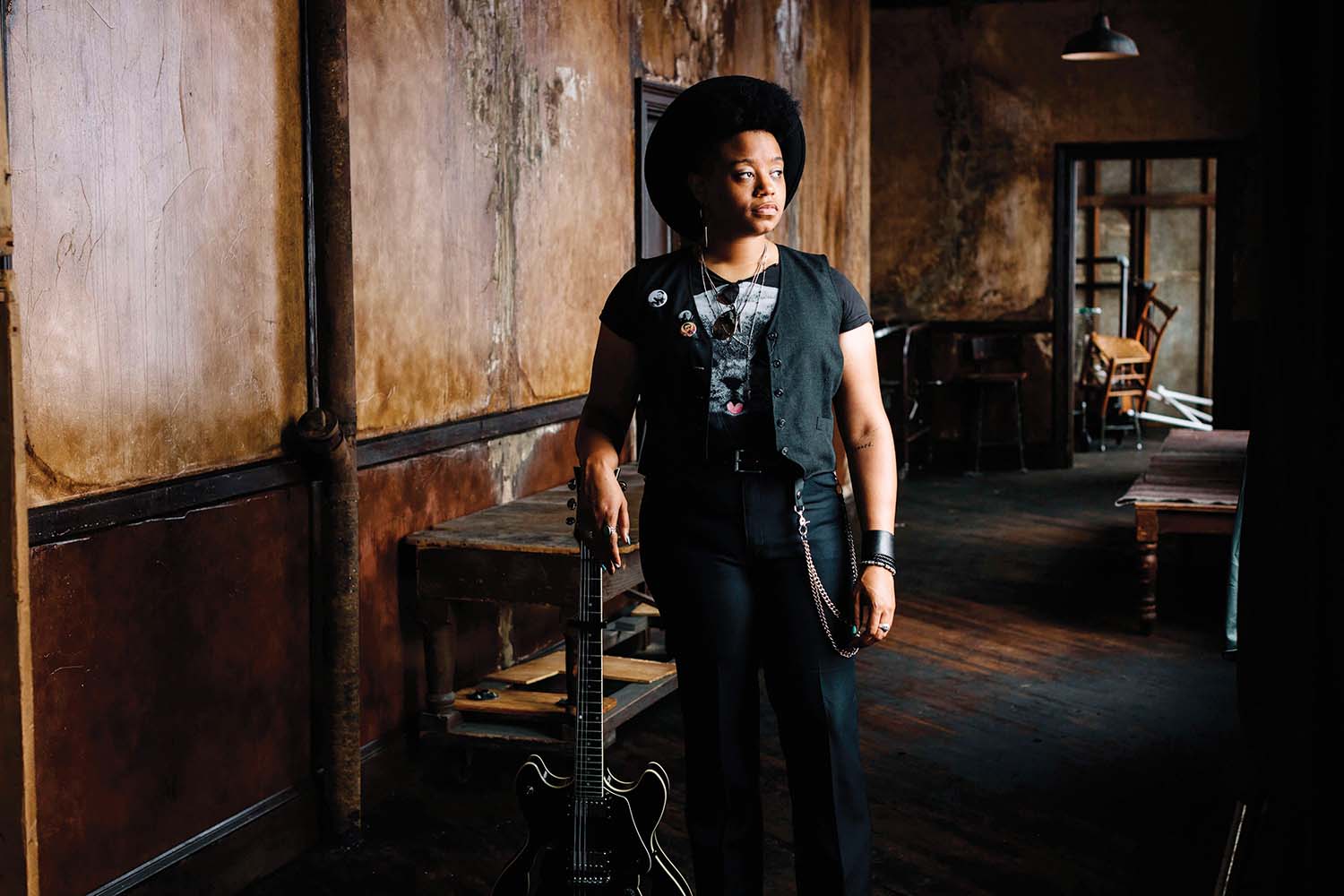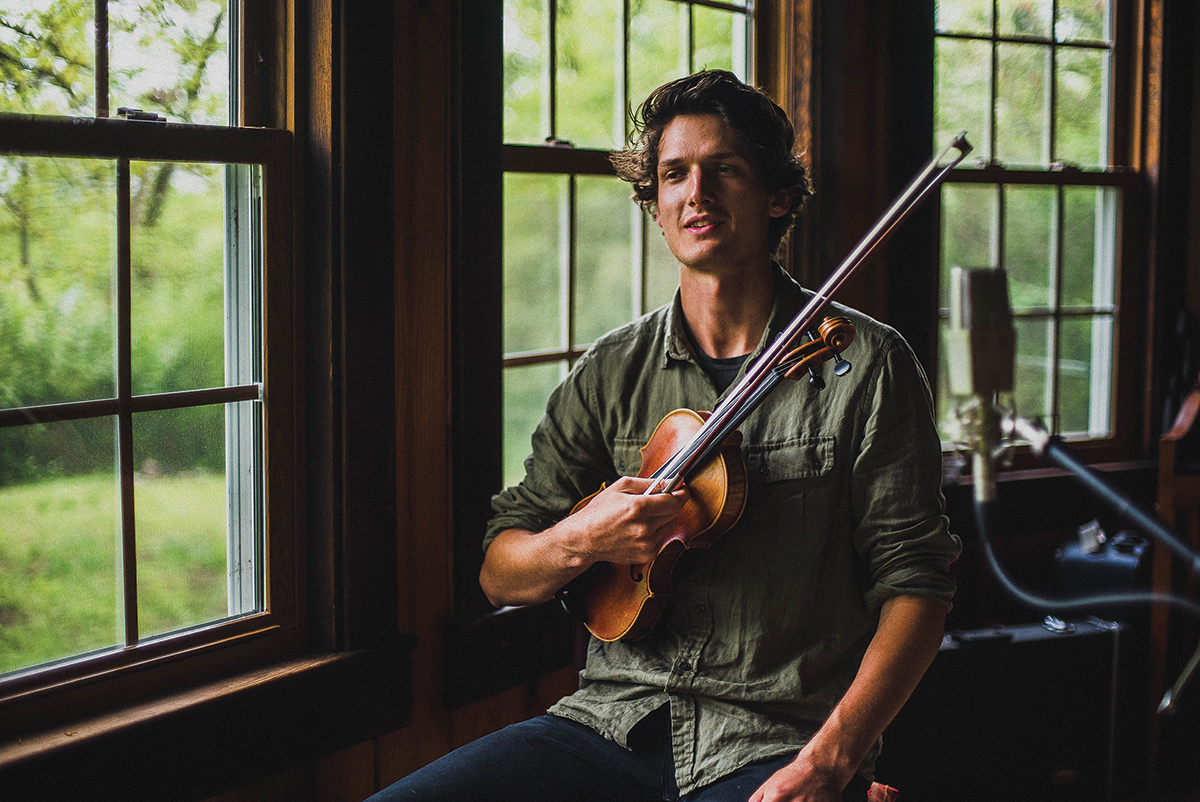
Black Americans playing traditional Appalachian music “is nothing new,” says Amythyst Kiah.
Born and raised in Bristol, Tennessee, a town sometimes described as the birthplace of country, Amythyst Kiah grew up expected to play music. She released an album, Dig, in 2013, and the EP Amythyst Kiah and Her Chest of Glass last fall. New albums — one from her group, another a solo acoustic set — are in the works, and her voice is an important part of David Weintraub’s new movie, A Great American Tapestry: The Many Strands of Mountain Music.
The Hendersonville-based filmmaker explores the importance of African-American and Native American contributions to a form of music — Appalachian old-time — that’s usually attributed solely to the Scots-Irish influence. (It’s pointed out, for instance, that the banjo was played by black musicians in America a century before white musicians picked it up.)
Kiah is poised to break out in a big way. The guitarist plays sometimes solo, sometimes with a five-piece band; recently, she spoke to Bold Life about tradition and identity in her chosen genre.
You’ve already opened for Americana superstar Rhiannon Giddens this year on several concert dates: how did that come about?
I met Rhiannon and [her group] the Carolina Chocolate Drops a couple of times over the past five or six years. In January I got an e-mail from her manager: “We’ve been following Amythyst Kiah, and we’re really impressed with what she has been doing so far.” They wanted to know if I wanted to join the tour. It was a pretty cool opportunity.
How does music figure into your family background?
My mom and dad both are big music fans; there was always music playing in the house. Family goals were set for me to develop into a well-rounded individual: play some kind of sport, keep the grades up, and get involved musically in some way. I ended up getting a guitar when I was 13. But most of my first 10 years of playing guitar and singing happened in my room; I was able to create my own little world.
How did you go from there to performing onstage?
I decided to enroll in a guitar class at East Tennessee State University. Over the next six to seven years, I ended up performing in school bands, playing traditional music and learning about the history of the music. I discovered how multicultural Southern music is. In that program, the focus was not only on history, but also about performing and stage presence. Because it was challenging to go from playing in my room to “now you’re on the stage, and people are watching.”
Your rootsy, original songs have elements of country, blues, and gospel. Those are all indigenous American styles. What is it about traditional music that appeals to you?
When I started listening, I heard a lot of similarities between contemporary music and a lot of the old-time songs. There was one song in particular that really struck me: “The Blackest Crow” is about a couple, one of whom is out at sea. Anything could happen; you really don’t know if you’re going to see them again. Songs about questioning — examining loss and death, working through those emotions and trying to come out on the other side — have always resonated with me.
How important is your African-American identity to the music you make?
I tell people, “Hey, this may be your first time seeing this, but black Americans playing this kind of music is nothing new.” But if I can get one person to open their mind and explore something that could really be more fulfilling for them, I feel like I’ve done something pretty good.
Amythyst Kiah performs solo on Thursday, June 22, at the world premiere of David Weintraub’s movie A Great American Tapestry: The Many Strands of Mountain Music. She’ll also be part of the post-movie discussion panel featuring musicians from the film. Bo Thomas Auditorium at Blue Ridge Community College (180 West Campus Drive, Flat Rock). 7pm. $10. For more information, see saveculture.org or call 828-692-8062. (The movie also shows June 29 at the Fine Arts Theatre in Asheville and June 30 at White Horse Black Mountain.)



